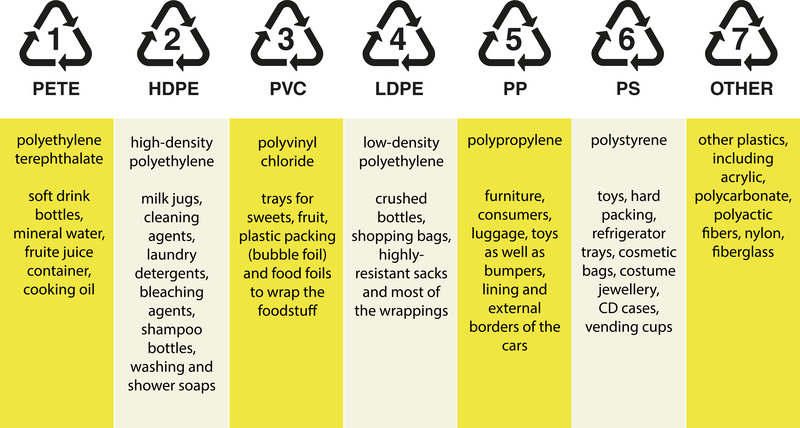Navigate Skip Hire with Confidence: Dos and Don'ts Guide
Disposing of waste can be an overwhelming process, but with the right knowledge, skip hire can become your most reliable ally. Whether you're a homeowner renovating your kitchen or a contractor managing a major construction project, navigating skip hire services efficiently ensures compliance with waste disposal regulations while saving you both time and money. In this comprehensive article, you'll discover the essential dos and don'ts of skip hire, empowering you to confidently conquer waste management challenges.
Understanding Skip Hire: What You Need to Know
Skip hire simply refers to the practice of renting large waste containers--commonly known as skips--to safely and efficiently dispose of rubbish. Skips are available in various sizes and can accommodate a wide range of rubbish, from domestic clear-outs to large commercial debris. When searching for waste skip hire or rubbish skip rental, knowing your options and responsibilities is crucial for a seamless experience.
The Importance of Choosing the Right Skip Hire Company
- Reputation: Always opt for a skip hire provider with positive customer reviews and transparent policies.
- Compliance: Confirm that your chosen company meets all local and national waste disposal regulations.
- Service Range: Some skips are designed for construction waste, while others cater to household rubbish. Ensure the company provides the type of skip suitable for your needs.
Tip: Ask about eco-friendly waste processing and recycling rates, as responsible disposal demonstrates commitment to sustainability.
Understanding Skip Sizes and Uses
- Mini Skips: Ideal for small domestic projects or garden clear-outs.
- Midi Skips: Suitable for medium-sized jobs, such as bathroom or kitchen renovations.
- Builder's Skips: Perfect for construction sites or large-scale refurbishments.
- Roll-on Roll-off (RORO) Skips: Designed for commercial or industrial use and capable of handling large volumes of waste.
Always measure your waste load carefully and ask for professional advice to avoid under or overestimating your skip hire needs.

The Dos of Skip Hire
For a hassle-free experience, adhere to these essential dos when arranging a skip hire service:
Do Assess Your Waste Type
- Segregate materials - separate general waste, recyclables, and hazardous items.
- Read your hire agreement carefully; some skips cannot accept specific waste types such as asbestos, electricals, and chemicals. Check with your skip hire company for a full list of excluded items.
- Place prohibited materials in alternative disposal channels to avoid fines and legal issues.
Do Acquire Necessary Permits
- If your skip will be placed on public land or a roadside, obtain a permit from your local council. Most reputable companies can handle this process for you, but always double-check permission status before delivery.
- Display required signage and safety lights on or around the skip to comply with local regulations.
Do Choose the Right Location for Your Skip
- Select a flat, stable surface free from obstacles like trees, walls, and parked vehicles.
- Ensure the skip is easily accessible for lorries and loaders.
- Avoid blocking driveways, emergency exits, or public pathways.
Do Load the Skip Responsibly
- Distribute weight evenly within the skip to prevent tipping or shifting during transport.
- Break down bulky items to maximize space efficiently.
- Never exceed the skip's fill line--overfilling is unsafe and may incur extra costs or removal refusal.
Do Consider the Environment
- Seek providers prioritizing recycling and environmentally responsible disposal.
- Dispose of green waste, metals, and glass separately when possible.
- Ask about waste processing facilities to ensure ethical practice.
Do Communicate Clearly with Your Skip Hire Provider
- Provide accurate delivery and pick-up instructions, including site access details and contact information.
- Clarify hire period expectations to avoid late fees or abandoned skips.
The Don'ts of Skip Hire
Avoid these common skip hire mistakes to protect your project, your wallet, and the environment:
Don't Dispose of Prohibited Materials
- Certain items, including hazardous chemicals, tyres, medical waste, fridges, televisions, and batteries, cannot be legally disposed of in a skip.
- Refer to your skip hire company's excluded items list and local council guidelines for responsible disposal alternatives.
Don't Overfill or Overload the Skip
- Overfilled skips pose risks during transportation and are unlawful.
- If the contents exceed the rim or fill line, most providers will refuse collection or charge additional fees for removing excess waste.
Don't Block Access or Cause Obstruction
- Avoid placing skips in a position that blocks access for emergency vehicles, neighbours' driveways, or public footpaths.
- Failure to provide clear, unobstructed access may lead to fines or delayed skip removal.
Don't Ignore Permit Requirements
- Placing a skip on public land without the necessary permit can result in legal penalties and forced removal.
- Permits must be correctly displayed, while the skip must be properly marked and lit during night hours.
Don't Delay Collection unnecessarily
- Most skip hire contracts specify a collection window. Keeping the skip beyond this period can lead to additional charges.
- Schedule collection as soon as you finish loading to keep your site tidy and avoid incurring extra costs.
Skip Hire Frequently Asked Questions (FAQs)
What Items Can I Put in a Skip?
Permitted items typically include furniture, wood, plastics, bricks, concrete, garden waste, paper, and metals. Always check with your rubbish skip rental provider for a detailed list.
What Are Some Commonly Prohibited Items?
- Asbestos
- Electrical items (TVs, fridges, microwaves)
- Paints, solvents, and chemicals
- Fluorescent tubes
- Medical and clinical waste
- Tyres and gas canisters
How Long Can I Keep the Skip?
Standard hire periods range from 7 to 14 days, but most skip hire companies offer flexible rental terms. Make arrangements in advance if you require more time, and ensure timely collection to avoid additional costs.
How Much Does Skip Hire Cost?
Prices depend on skip size, hire duration, waste type, and location. Mini skips are the most economical; larger builder's skips and RORO containers are pricier but more cost-effective for bigger jobs. Always request a detailed quote upfront to avoid surprises.
Pro Tips for Efficient and Legal Waste Management
- Photograph your skip: Take pictures before and after loading for reference in case of disputes about overfilling or prohibited items.
- Label your waste: Clearly mark hazardous or recyclable waste that needs to be sorted separately.
- Consider skip bags: For limited spaces or very small jobs, skip bags are a flexible and affordable alternative to traditional skips.
- Be neighbourly: Inform neighbours if your skip hire might affect their access or parking, fostering goodwill and preventing complaints.
- Check for hidden fees: Look out for additional costs like permit fees, extended hire, or charges for prohibited waste. Transparent skip hire companies itemize all fees in your initial quote.

Key Takeaways: Skip Hire Made Simple
- Plan ahead - estimate the right skip size and hire period before your project starts.
- Understand what can and can't be disposed of in your skip to stay compliant and avoid fines.
- Ensure legal compliance by securing all necessary permits if your skip is placed on public land.
- Pack smart - break down items, distribute weight, and do not exceed the fill line.
- Select a reputable skip hire company specializing in ethical waste disposal and customer support.
With these essential dos and don'ts, you can confidently manage your skip hire, transforming a potentially stressful process into a streamlined, hassle-free experience. Remember, efficient skip hire is not just about disposing of waste - it's about protecting your environment, complying with the law, and making your project run smoother from start to finish.
Your Trusted Checklist: Navigate Skip Hire with Assurance
- Research skip hire providers and compare quotes.
- Select the optimal skip size for your waste needs.
- Separate and categorize your waste.
- Ensure you have the necessary permits in place.
- Provide safe and clear roadside or on-site access for delivery and pickup.
- Follow loading guidelines and don't overfill.
- Arrange prompt collection after use.
Ready to simplify your next project? With this comprehensive guide to navigating skip hire, you're well-equipped to avoid common pitfalls. Make informed decisions, stay on the right side of regulations, and confidently wave goodbye to unwanted waste. Navigate skip hire with confidence--your waste management, made easy.